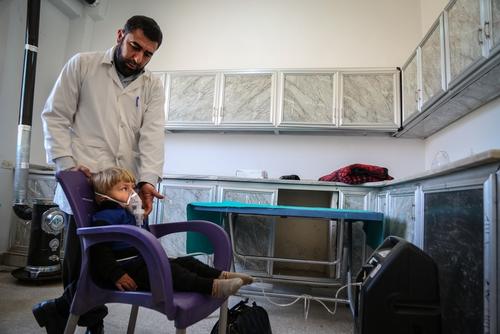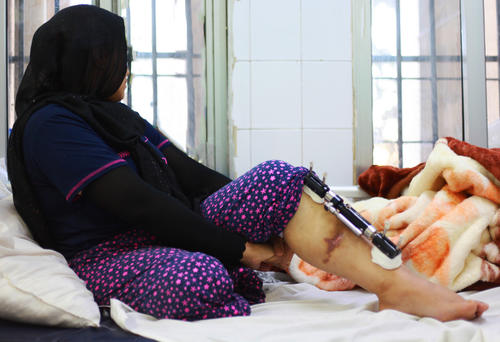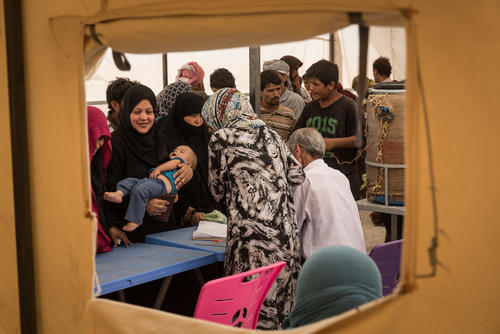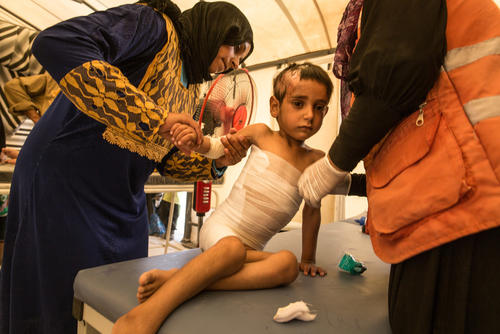In its 45-year history, Médecins Sans Frontières has used its presence in the field and its proximity to patients to bear witness and bring the plight of populations affected by disease, natural disasters and conflicts to the world’s attention.
MSF’s default modus operandi is to provide medical care and humanitarian aid directly thought its own staff, without intermediaries to implement activities. It also avoids using intermediaries to collect medical data and share patient and staff testimonies.
In exceptional contexts, such as Chechnya or Somalia in the past and now Syria, when MSF personnel cannot access an area – for security reasons or because access is denied – but medical needs are huge and acute, the organisation has operated “support” projects with trusted partners or individuals, in collaboration with local medical associations and relief groups. In practice, this means sending drugs and medical material and providing remote support and specialist medical advice via telecommunications.
In Syria, MSF has faced a unique situation in many areas with large numbers of people trapped in besieged areas, and no possibility to have MSF staff on the ground for long periods of time. There are a few exceptions, where MSF operates medical facilities in opposition-held areas run by MSF local staff.
On many occasions in the past six years, MSF teams managing Syria support programmes have received reports of critical lack of access to healthcare, starvation, bombed hospitals, killed medical staff and even the use of chemical weapons. The extreme level of violence and its acute impact on the Syrian people led the organisation in some cases to speak out based on medical data and testimonies it received from its medical partners on the ground.
This data is often erratic and can lack consistency, and testimonies are difficult to verify in besieged areas, where alternative sources of information are very limited. As much as possible, the information is fact-checked and triangulated. The organisation makes sure it only comes from individuals or groups it has collaborated with in a trusted and often daily relationship for months, if not years.
Through information we obtained in this way, however imperfect, however blurry, we became aware of the immense suffering of the people trapped in the Syrian conflict. When this information showed evidence of extreme medical needs in an environment where the protection of the medical act, the patients we support and the humanitarian principles we uphold were blatantly disregarded by the warring parties, MSF sometimes chose to communicate.
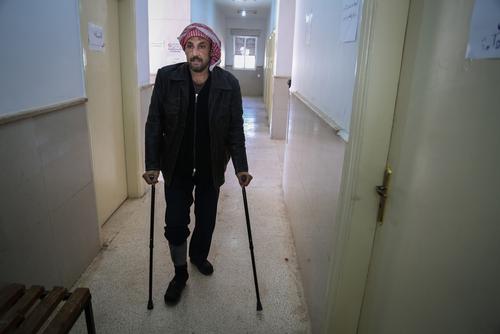
Communicating in this way, in a conflict where humanitarian aid has been subsumed by the warring parties using ‘with us, or against us’ logic, constitutes an extremely difficult dilemma for MSF. However, we have chosen to do so when the medical consequences of the ongoing violence, reported to MSF, showed extreme suffering, or when medical staff and facilities were directly attacked.
Knowledge is power, and even the most innocuous medical statistics are prone to be abused by parties to the conflict to further their political or military goals. And often the story MSF has to tell is far from mundane.
Although these communications were never done without considering first and foremost the consequences on the population we are trying to support, the truthfulness of these statements has been challenged as parties to the conflict seized on our reports to score political points against their opposition. Once our statements are made public, the way they are used by other actors is out of MSF’s control.
Decisions related to data or testimony collection, the way information is gathered and the quality assurance protocols for putting information together are complex, unique to each case and not always within MSF’s control either. With limited control over the input, and no control over how the information is used, risks of manipulation by warring parties are amplified. The propaganda war around the Syria crisis has no limit. It not only involves local actors but mighty global powers with strong vested interests. Positions are polarised and confrontational, and any information or data has the potential to be used by all sides to demonise their opponents.
This risk of manipulation and bias also exists when MSF teams are present in the field. However, in those cases we can take full responsibility in our attempt to use data and stories to reflect the reality of our operations and have more control to ensure that they are not undermined by any particular political or military agenda. When the medical data and testimonies are not ours, it is more challenging to guarantee that.
MSF’s ambition of proximity to its patients remains the core of its operational model but MSF’s ultimate objective is to assist people in desperate need. Speaking out on the basis of external but trusted information is sometimes the only way to do this. Using this information comes with great responsibility and the organisation should always clearly state where the information comes from and how it was verified.



